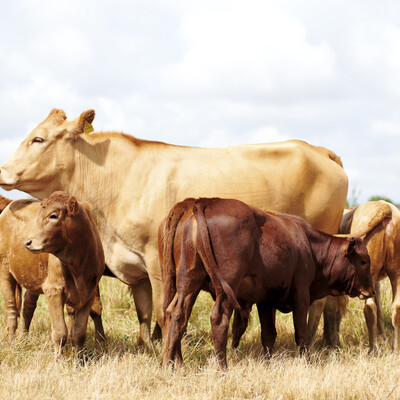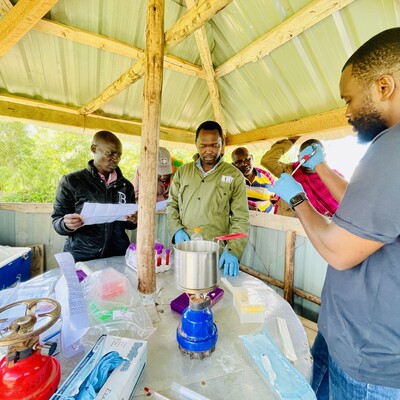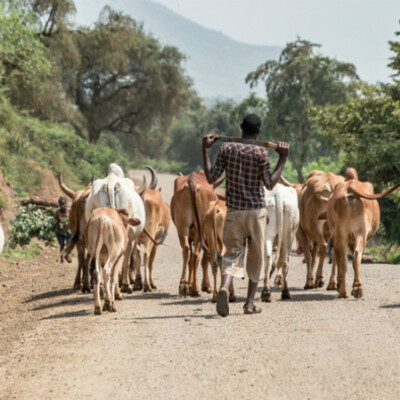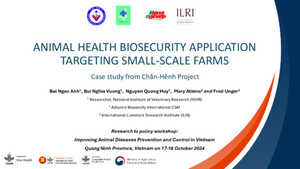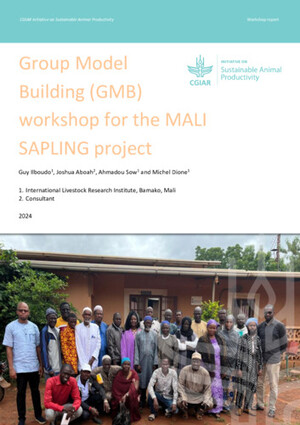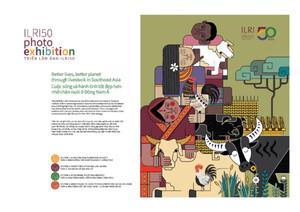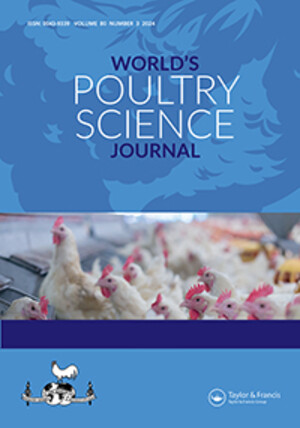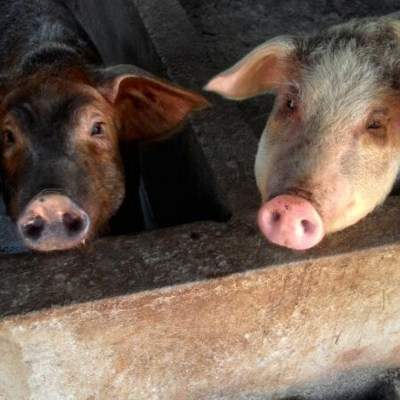
European Union invests in climate-smart innovations in livestock production
The European Union-funded, Livestock Production Systems in Zimbabwe (LIPS-Zim) Project was launched in Buhera District, Zimbabwe, on 5 March. The four-year EUR5 million project aims to contribute to the government of Zimbabwe’s agricultural transformation agenda by increasing the adoption of climate relevant innovations in livestock-based production systems and improving surveillance and control of livestock diseases. LIPS-Zim is implemented by the government of Zimbabwe and supported by agricultural specialists from the Department for Research and Specialist Services, International Livestock Research institute (ILRI), the International Maize and Wheat Improvement Center (CIMMYT), the French Agricultural Research Centre for International Development (CIRAD), the University of Zimbabwe, the International Crops Research Institute for the Semi-Arid Tropics (ICRISAT) and the French Institute of Research for Development (IRD).
The launch event was attended by high-level officials from the Ministry of Lands, Agriculture, Fisheries, Water and Rural Resettlement, European Union Delegation in Zimbabwe, district government officials, development partners and researchers.
LIPS-Zim aims at identifying, piloting and upscaling adoption of innovations that can transform livestock-based production systems for improved productivity in the agro-ecological regions IV and V. These areas are prone to droughts and home to most of the smallholder livestock population. The project complements other efforts in the livestock sector, including the European Union-funded Zimbabwe Agricultural Growth Programme (ZAGP).
Speaking at the launch, Honorable A. J. Masuka, minister of Lands, Agriculture, Fisheries, Water and Rural Resettlement, said:
‘While livestock plays a crucial role in smallholder farmers lives, the livestock sector in Zimbabwe is characterized by low productivity. Feed unavailability, prohibitive feed costs, poor quality of animal genetics, animal diseases and frequent droughts are major constraints contributing to low livestock productivity. I would like to thank the European Union for funding the LIPS-Zim project that aims to increase incomes of smallholder farmers by building inclusive market systems that help to reduce/eliminate the involvement of middlemen along the value chain.’
Speaking at the launch, Ambassador Timo Olkkonen, head of the EU Delegation to Zimbabwe, stated:
‘In Zimbabwe, the food production systems are also in need of change; they need to evolve drastically. Productivity is very low and the situation has gotten worst over the recent years. There are improved approaches, practices and innovations that can be co-generated by farmers, harnessed for their use and adopted which will show a way towards a healthier and more sustainable livestock-based production systems.’
Olkkonen also drew attention to a new approach in Europe, namely the European Green Deal, and the farm-to-fork strategy for a healthier and more sustainable production of food.
Sikhalazo Dube, coordinator of the LIPS-Zim stated that ‘LIPS-Zim project seeks to explore ways to increase the profitability of the livestock value chains for the benefit of the farmers. Further, the project seeks ways to better restore resources, and mitigate economic and weather-related risks through integrated livestock and crop systems. LIPS-Zim will identify existing and new opportunities for organizing small and medium enterprises (SMEs), provide business training, assess the market, support the revamping of markets, business coaching and mentoring, and monitor the adoption rates of innovations.’
LIPS-Zim is designed to identify, pilot and upscale measures for improved productivity in livestock production. Such innovations should address bottlenecks around profitability and investment diversification.
To ensure better animal disease detection, surveillance, and control systems, the project will investigate the distribution and prevalence of priority diseases (such as those spread by tsetse and ticks) and develop a model on the impact of climate change on disease carriers and disease distribution. It will implement a participatory epidemiology approach by combining the existing conventional control methods and the indigenous knowledge systems. Further, the project will roll out an integrated tick- and tick-borne disease control strategy and develop cost-efficient vector control and disease prevention systems.
LIPS-Zim is part of the European Union’s Development Smart Innovation through Research in Agriculture (DeSIRA) initiative. DeSIRA aims to contribute to climate-relevant, productive and sustainable transformation of agriculture and food systems in low and middle-income countries, to put more science into development considering that the solutions to achieve the Sustainable Development Goals are context-specific.
For more information, contact
- Project coordinator (ILRI): Sikhalazo Dube, +263-779-566-048 s.dube@cgiar.org
- Lead scientist (UZ): D Pfukenyi, +263-775-083-858 dpfukas@gmail.com
- Lead scientist (CIMMYT): I Nyagumbo, +263-772-238-284 i.nyagumbo@cgiar.org
- Lead scientist (CIRAD): M. Boutgarel +263-775-131-601 mathieu.bourgarel@cirad.fr
- Alice Peslin (EUD Zimbabwe) Alice.PESLIN@eeas.europa.eu
Media enquiries
Saba Ermyas, communications officer, ILRI: s.ermyas@cgiar.org






